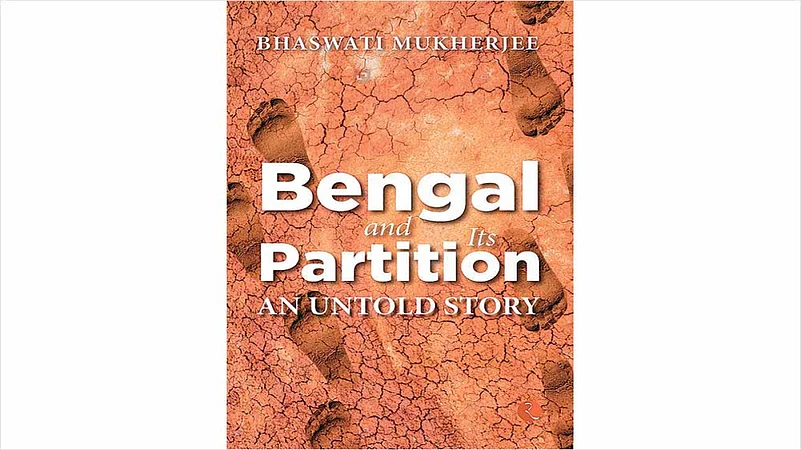The painful partition of Bengal in 1905 had larger consequential effect on India’s Partition in 1947, with lasting impact on the Indian society, according to Bhaswati Mukherjee in her well-researched book Bengal and Its Partition: An Untold Story. She traces developments since the battle of Palashi (Plassey) in 1757, whose repercussions were felt 100 years later in the form of the 1857 sepoy mutiny-—the largest anti-colonisation uprising in the world in the 19th century.
That Unholy Cleave
A former diplomat sweeps through Bengal’s history to narrate the story of its Partition, which she deems was avoidable

Apprehending the capacity of Indian people to mount a massive uprising against the empire and to prevent such a possibility, the British indulged in a policy of ‘divide and rule’ in Bengal to begin with, and then elsewhere in the country. Their efforts at compartmentalising Indian -history (and history writing) on religious lines were designed to create competitive forces that would counter-balance communities and save the empire the trouble of quelling them.
Subjugating people necessitated deliberate tactics of -demeaning their civilisation, -culture, traditions and, above all, destroying their self esteem. The British mindset was best encapsulated by the words of arch imp-erialist Rudyard Kipling: The White Man’s Burden. It is not hard to comprehend the reasons for the British inability to assimilate into Indian society, unlike their predecessors, much as art historian Percy Brown would like us to believe that “the country originally possessed by the inv-aders, now possessed them”.
Mukherjee, is unforgiving of the ruthless economic exploitation by the British symbolised and spawned by the Permanent Settlement of 1793 under Cornwallis, which ruined Bengal economically and consequently the rest of the country. Millions of farmers turned into landless labourers unable to pay high taxes; the failure of agriculture resulted in droughts and famines that claimed more than 30 million lives, leading up to the final, great Bengal -famine in 1943, which can be called ‘genocidal’. Also, she points out, the use of Indians as indentured labourers in sugar plantations abroad was akin to slavery, about which the British remains unapologetic to this day. Before the British turned rulers, India generated 27 per cent of the world GDP in 1770; by the time they left India in 1947 its share had been cut down to just 3 per cent. Veritably, Europe’s share of the global GDP rose from 20 per cent to 60 per cent during the same period. The fact that much of Western prosperity is directly linked to the loot of their colonies is sadly missed in the global narratives.
The Indian renaissance and reformist movements originated out of Bengal as a response aimed at developing universal tolerance and restoring national pride. The freedom struggle drew -sustenance from the syncretic culture of Bengal, which -metamorphosised into a nationwide movement.
The creation of the Muslim League in 1906 and the Communal Award of 1932 were designed to split the Indian electorates -primarily on grounds of religion and polarise Hindus and Muslims. The? ‘Calcutta killings’ in 1946-47 soon spread to other areas of Bihar and Punjab, sowing the seeds of distrust that -flowered into a full-fledged demand for partition and making a case for India and Pakistan as separate nations. Acceding to this demand, the author laments, was a major strategic error by the Indian National Congress.
Mukherjee also demonstrates how Cyril Radcliffe’s plan for Partition was shrouded in mystery. It was a tragic farce perpetrated on an unsuspecting people whose painful trek across borders -resulted in millions of deaths in communal violence. Those wounds lie unhealed still.
Mukherjee deplores that at its hour of greatest need, India was let down by her own leaders, who lacked comprehension, anticipation and above all, a visionary approach to India’s future. The scars of 1947 continue to cast a long shadow on the future of South Asia. The birth of Bangladesh, which was based on linguistic and -cultural identity, was a total negation of Partition based on religion, which could have been avoided.
(Dammu Ravi is a serving Indian Foreign Service officer)

























